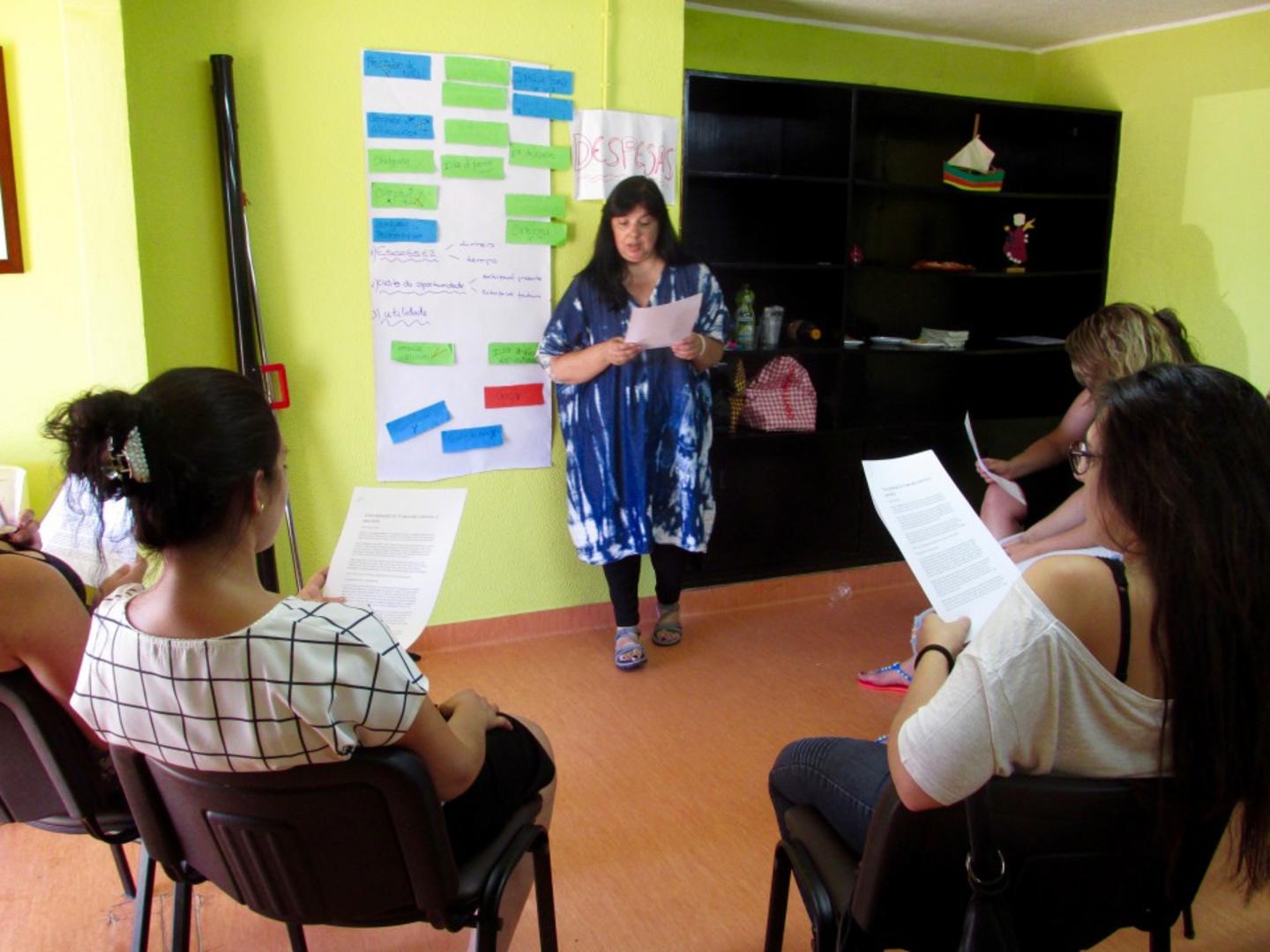Key information about the programme
- The programme is operated by: Commission for Citizenship and Gender Equality (CIG) in Portugal
- The Donor Programme Partner in this programme is: Norwegian Equality and Anti-Discrimination Ombud (LDO)
- The programme's objective is: Work-life balance improved
- The programme funding amounts to €6 million (excluding co-financing) and is funded entirely by the EEA Grants
Why is the programme needed?
Policies promoting work-life balance are vital to address current economic and demographic challenges in Europe. Fostering sustainable and quality employment for all is vital to increase cohesion throughout Europe. In Portugal, gender stereotypes still affect the work environment both at an individual level and at a structural level. In the private sphere, men spend less time in domestic work and care activities and there is a resistance to shared parental leave. Sexual and moral harassment in the workplace is widespread and educational and career choices for women are limited. There is also low awareness of rights (e.g. protection against discrimination in the labour market and promotion of access and working conditions in general). At the structural level, it is still challenging for women to fully participate in the labour market, public life, and decision making. Family friendly policies are not widespread and non-compliance with gender equality legislation is common (e.g., dismissal of pregnant women, violation of parental rights, discriminatory clauses in collective agreements and the gender pay gap).
Despite continued efforts to prevent and combat domestic and gender-based violence (DGBV), it remains an extensive and widely under-reported human rights violation, with young women and girls being particularly vulnerable. Portugal has developed policies to prevent and combat domestic and gender-based violence but more actions are needed e.g. to analyse the impact and effectiveness of measured applied to perpetrators, intervention aimed at vulnerable groups and to improve coordination in the services for victims.
What will the programme achieve and who are the beneficiaries?
The Portuguese Work-life Balance programme aims to promote equal gender opportunities in the labour market; improve accountability systems for women’s equal participation; and strengthen systems to address and prevent domestic and gender-based violence. The programme will address gender inequalities in the work life such as gender pay and pension gaps, gender segregation in education and occupations, local and municipal gender equality policies, and women’s participation in decision making. The aim is to develop instruments to combat gender inequalities in education and to develop vocational training and guidelines for integration of gender equality into the curricula in 20 schools. A further five study programmes are expected to formally apply guidelines for integrating gender equality as a quality criterion. A gender equality index for public and private employers, guidelines for gender impact assessment of new legislation will be developed and three practical instruments for measuring gender discrimination in the workplace. Ten companies are expected to apply gender equality instruments and an additional 30 are expected to participate in the programme for women leaders with at least 30 women participating in the leadership course.
As regards to gender based and domestic violence, the programme aims to improve services for 200 survivors, support five prevention programmes, and train 170 professionals – 20 on DGBV protection and prevention and 150 individuals in the use of the shared municipality information system on DGBV.
How will the programme strengthen bilateral relations?
Ensuring a good work-life balance has been a priority in the donor countries for several decades. Bilateral cooperation offers the opportunity for exchange and transfer of knowledge between Portugal and the three donor countries. This includes e.g. the experience that donor countries have in social dialogue and cooperation between the social partners, gender equality pay index, shared parental leave and ensuring women’s participation in decision making. Bilateral partnerships in the Portuguese Work-life Balance programme is expected to result in mutually beneficial activities and long-lasting cooperation between the involved partners.
Availability of funding through open calls
In addition to four pre-defined projects included on in the programme agreement, funding will be made available through five open calls and two small grant schemes. Three calls, and both small grant schemes have closed, but the indicative timeline for the two remaining calls are published below:
- Call 2: Ungendering choices and behaviours – third semester 2019
- Call 3: Improving the legal system to foster gender equality – third semester 2019
Download the full programme agreement for more detailed information about the programme
More information can also be found on the Programme Operator's website and on the Donor Programme Partner's website: Norwegian Equality and Anti-Discrimination Ombud
